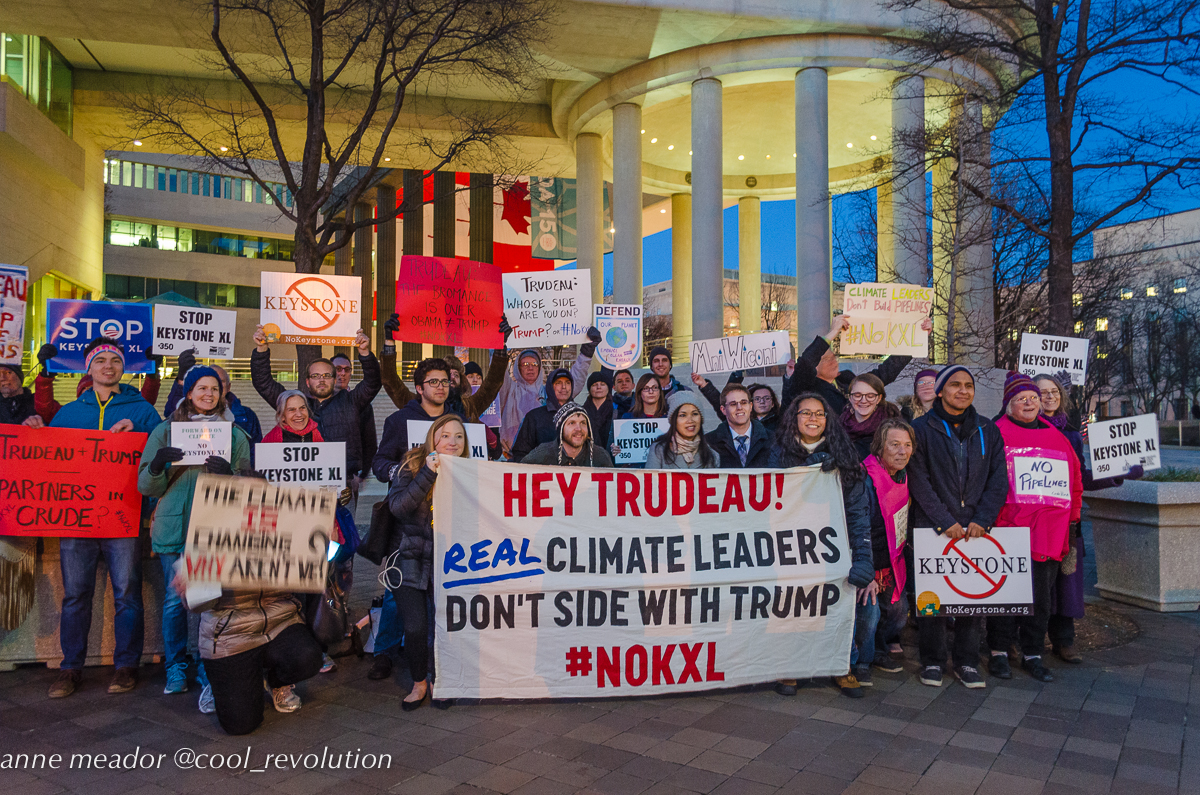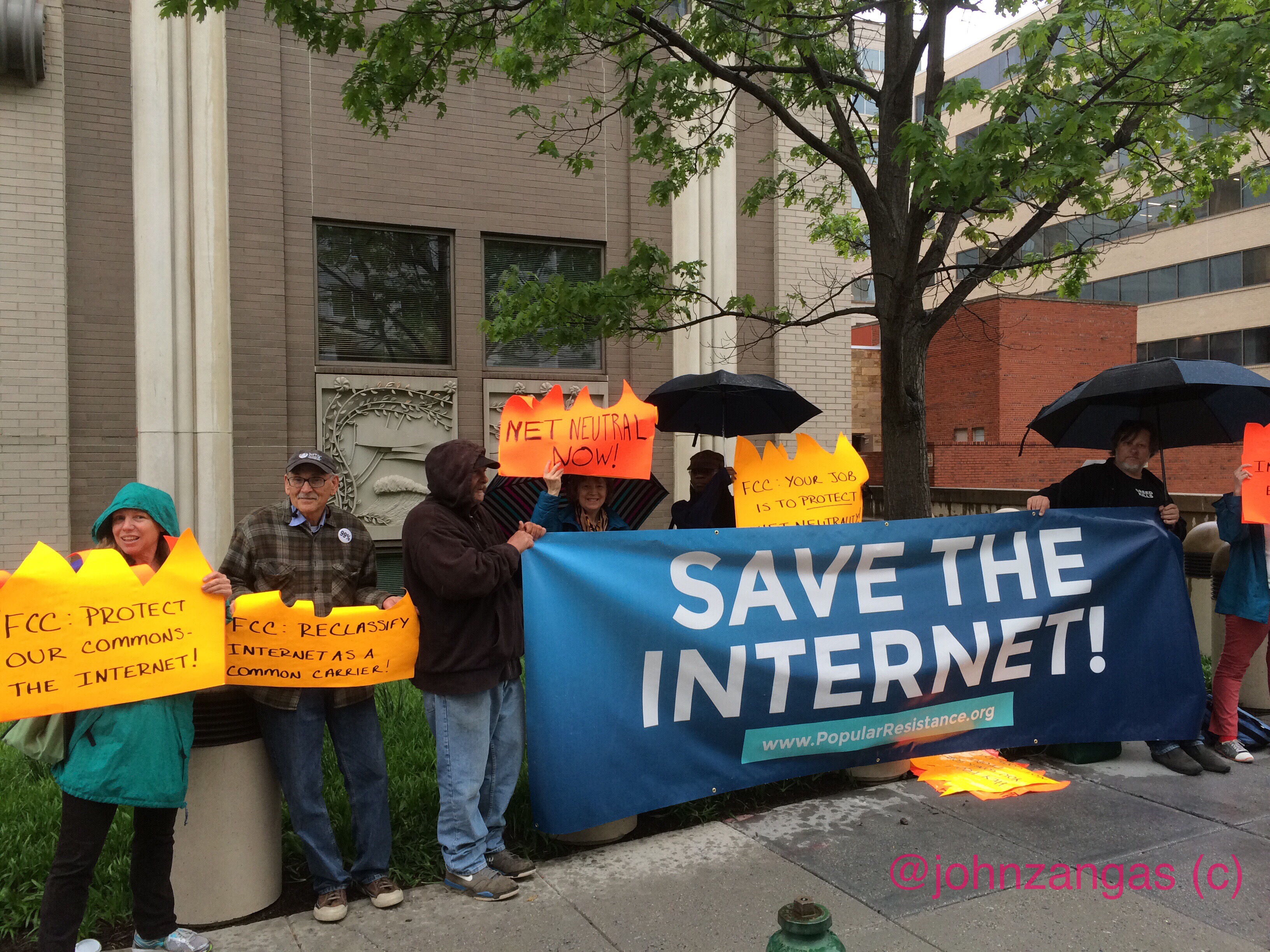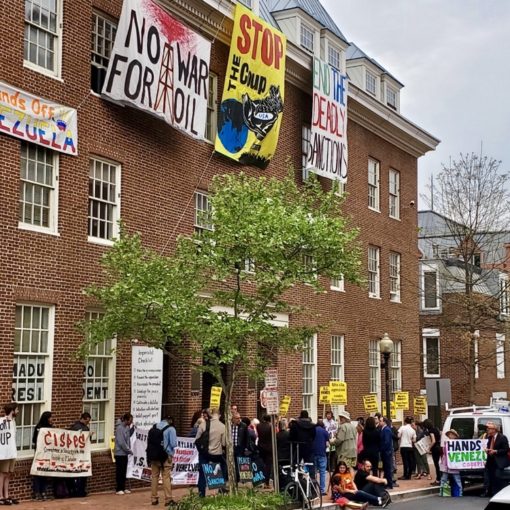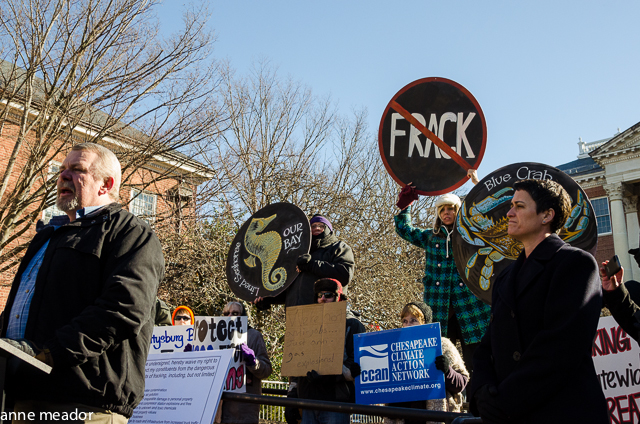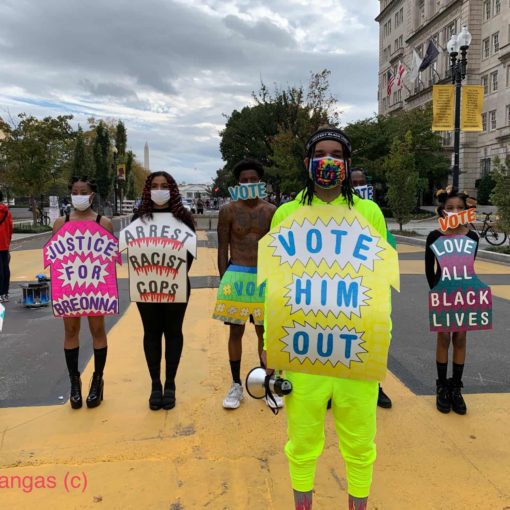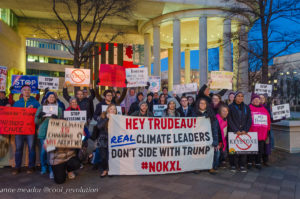
Washington, DC–President Donald Trump and Canadian Prime Minister Justin Trudeau embraced warmly today at their first official meeting at the White House, finding common cause in building oil pipelines, among other things. But protesters, who staked out Trudeau at the Canadian embassy later in the afternoon, made sure that the Prime Minister saw their determination to fight fossil fuel infrastructure.
Among the flurry of executive orders issued during the first week of President Trump’s term was a memorandum he signed regarding the northern leg of the Keystone XL pipeline. It invites TransCanada to re-submit its application for Keystone XL and instructs the Secretary of State to expedite review and render a decision within 60 days. President Obama withheld approval in November 2015, making Keystone XL dead in the water. Trump’s commitment to get it up and running, however, revives TranCanada’s hope of finally constructing the pipeline to transport dilbit, a dirty form of crude oil, from the Alberta tar sands to Port Arthur, Tex.
In meeting Trump, Trudeau had the perfect opportunity to repeat the words he told a schoolboy just two months ago in answer to a question about how he’d set a climate-denying world leader straight. President Trump has never acknowledged the reality of climate change and even claimed that it is a hoax perpetrated by the Chinese government.
“It’s about doing the right thing and doing the smart thing,” Trudeau said to the boy at the time.
But, judging by the joint statement released by the President and Prime Minister, Trudeau may not have brought up climate change at all. For the first time in at least 8 years, the joint statement did not include the words “climate change,” according to Collin Rees of Oil Change International, who addressed the crowd of about 100 gathered at the Canadian Embassy.
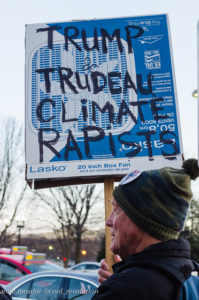
“We have a climate denier in the White House now, and it’s even more important that people step up,” Rees said. Furthermore, if Canada’s Trudeau allows fossil fuel companies to build all the pipelines they wish, the country will become one of the biggest oil-producing nations in the world and “doom climate to failure,” he said.
First Nations in Canada are among those who would be impacted by environmental damage caused by construction and potential devastation from leaks or spills. “If you are okay with this pipeline, then you are okay with the subjugation of every project-affected community,” said Washington, DC-based organizer Kathleen Brophy.
“If you support this pipeline, you’re saying that you’re willing to sacrifice community health for indigenous communities, non-indigenous, American, Canadian,” she continued. “These communities are ‘collateral damage.’ Communities are not ‘collateral damage.’ Communities are much more important than putting money into company’s pockets.”

